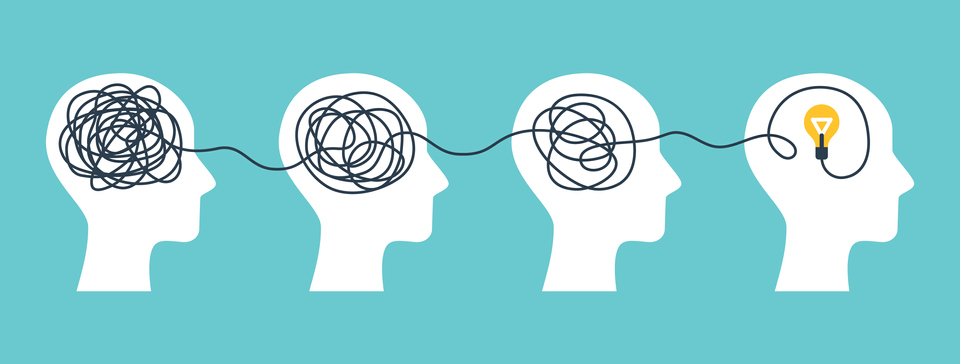
©kotoffei/iStock/Getty Images Plus
It’s easier to change yourself than it is to change others. Day five of the Financial Leadership Summit could be summed up with that phrase. Thank you Cam Marsten for offering it to the attendees. Our organizations have access to mountains of data and uncovering strategic trends may come down to how quickly we learn to learn, unlearn, and relearn communication preferences, do-it-yourself technologies, and evolving your organization’s culture. I recognize these aren’t small tasks. But, the methods by which we influence others today are so different from a decade ago. In meeting people where they are, we improve our ability to accomplish big goals.
Cam Marston, President of Generational Insights, led a wonderfully interactive session entitled Leadership in a Distracted and Remote World. You may know that many Baby Boomers are parents to Millennials and that they’re often referred to as “helicopter” parents. What Cam taught me was that many from Generation X are parents to Generation Z and are commonly referred to as “drone” parents. The implications of these different parenting approaches are fascinating, and so far reaching. He talked attendees through how growth in the American economy has created a level of affluence that has allowed Generations Y and Z to delay adulthood, focus more on their individual ambitions, and traverse life’s stages at later times than their predecessors.
Cam also shared that Boomers like to be given the history, the story, the background on a topic. It helps them navigate change more smoothly. For Millennials, we can guide them through change by clearly setting expectations, painting a picture of the future, and helping them see how they’ll benefit from change. Boomers learned via books and had time for deep thought and depth of knowledge. Generations Y and Z learned via screens, had less time for deep thought, and adapt via associative reasoning. Neither way is right or wrong. What’s key is knowing your own preferences, identifying others’ preferences, and changing your communication to let others’ preferences thrive.
Ally Wilson and Zhichao Li, with Microsoft, demonstrated Microsoft’s power platform in their session Driving Finance and Accounting Innovation without Learning to Code. The platform includes Power BI (data visualization), Power Apps (custom apps), Power Automate (automated processes), and Power Virtual Agents (chatbots). It was fascinating to see both Ally and Zhichao demo the different functionalities and seamless integrations. My mind raced as I thought through the ability to customize workflows and interfaces, securely collect data from hundreds of sources, and have secure access to a central database. I’m amazed at how far technology has come. If you’ve not yet, check out these do-it-yourself technologies.
Chris Santomassimo, General Counsel and Chief Compliance Officer with Santomassimo Davis LLP, offered many suggestions for managing employee risk post COVID. Chris reminded us that we should be clear on our organization’s long-term objectives and putting our company culture first when considering third-party guidance and local requirements about COVID. If you don’t have one yet, invite your employees to dialogue about work environment concerns. With that input, solidify a written plan for how you’ll fairly and equitably handle issues as they arise. If you’re choosing to return to the office, consider appointing a coordinator to manage possible complaints, offering company-wide training about policy changes, implementing measures to limit the virus’ spread, and rolling out protections for high-risk employees. To protect yourself in the case of a whistleblower, ensure your anti-retaliation policies are well socialized. Chris reminded us that per OSHA, the employer is responsible for ensuring anyone working from home is safe (e.g. ergonomic seating, desk, monitors) and protected from cyber attacks. He also mentioned that employers can mandate that employees get the COVID vaccine and you can ask employees if they’re vaccinated.
Our final educational session of day five entitled, ESOP as an Exit Alternative, was moderated by Joe DeJong from Bankers Trust Company and included panelists Michelle Jensen from Rayser Holdings and Dan Markowitz from the Boulay Group. Each shared real world insights into fiduciary responsibility of trustees, potential tax savings and benefits, that on average it costs approximately $300,000 to facilitate an ESOP transaction, that it normally takes 4-6 months to complete a transaction, and that employee ownership often brings improved retention and recruitment. If your organization is considering a transition in ownership, please consider watching this on demand if you missed it live.
Thank you to FEI’s President and CEO, Andrej Suskavcevic, COO, Lili Devita, and the membership team for a great new member networking event. They discussed a multitude of membership benefits including the FEI Connect discussion board, hundreds of national and local professional development sessions, special interest groups, alliances with other community groups, peer-to-peer networking, business development opportunities, and more.
Thank you also to FloQast, High Radius, and Workiva for your pre-conference demo sessions.
Peter Drucker once said “The only skill that will be important in the 21st century is the skill of learning new skills. Everything else will become obsolete over time.” Some might say that learning, unlearning, and relearning has become our way of life regardless of the generation you’re from. If you have school-aged children, the pandemic might have taught you that teachers are becoming learning facilitators. Instead of instructing students, they’re helping students construct their own learning - via books, screens, with friends, outside in nature, etc. If it truly is easier to change yourself than it is to change others, then let’s all be kids again. Let’s construct our own learning. What do you want to learn about?
Michael S. Seaver has served as emcee of the Financial Leadership Summit for the last four years. To learn more about his work as speaker, leadership consultant, and executive coach, visit michaelsseaver.com.